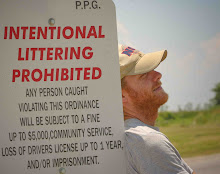 Has HUD no Heart?
Has HUD no Heart?The US Department of Housing and Urban Development knows when it’s losing. Yesterday lawyers representing HUD filed a retaliatory suit against 10 residents and allied activists who have been waging a concerted nonviolent campaign to reopen public housing in the city of New Orleans. The suit seeks to bar residents from entering and cleaning their apartments. HUD’s counsel claims that these residents and activists are "acting in concert with their attorneys Tracie Washington and Bill Quigley" to illegally enter the St. Bernard public housing development, trespass, and do damage to property there.
The suit has been initiated by the Bush administration’s housing agency after more than a week of nonviolent direct actions aimed at reopening public housing in the crescent city. On February 15, Martin Luther King, Jr. Day, residents of the St. Bernard public housing development gathered with other public housing tenants and allied activists at the survivor’s village, a makeshift camp and staging ground outside of the housing complex in the 7th Ward. In opposition to HUD’s desire to close off and demolish the St. Bernard and 3 other major public housing developments in the city – home to tens of thousands of New Orleanians still displaced more than a year after Katrina – residents and activists cut through the fence surrounding St. Bernard and entered with the intention to clean up and reoccupy the development. They did so.
Since that day a group of activists, calling themselves May Day NOLA have occupied apartments in St. Bernard. Residents of the complex have given them permission to sleep and work there as their guests. Under the Housing Authority’s rules, residents of the complex may allow a guest to reside in their apartment for up to 1-month. May Day NOLA’s members explain in an open letter that their actions are intended to reopen public housing and secure the right of return for public housing residents who are being displaced by greed and poor policy decisions, not a natural disaster. “We are hopeful that through negotiation this occupation will end quickly, so that we can go home, and that Public Housing residents may return to their city and to their homes,” reads the group’s statement, released shortly after they cut through the chain link fence enclosing the development. On Saturday, February 20th residents and others re-entered the St. Bernard and continued the cleanup. May Day NOLA helped by holding down the St. Bernard for the week.
The actions have energized community members and fueled the desire to come back home. Josh Cousin, aka The Book, a blogger from New Orleans – http://booknote.blogspot.com - who grew up in the St. Bernard explains the wider significance of retaking public housing in the city:
“Many of the Residents fighting for the St. Bernard were already in there own/rented homes now and don’t really need to return to the St. Bernard. All we really want is to see an active neighborhood again. One that we can visit and see people we know. We the people want our hood back because of just that.”
Although he doesn’t live in the St. Bernard anymore, Book has followed the actions closely and written about them because he understands their wider significance to the city; how the re-opening of public housing will have a ripple effect on all of New Orleans and help to revitalize whole surrounding neighborhoods. After MLK Day, Book wrote that, “it was like the old hood. That’s what I wanted to see. Happy people.”
Apparently HUD does not. The lawsuit, if successful will provide Housing Authority police with a court order to force out the occupants who have been holding down apartments in the St. Bernard and bar residents from entering to clean them out and prepare for their homecoming. Bill Quigley, a lawyer working with the residents in their homecoming struggle explains that, “HANO's suit seeks money damages and a temporary restraining order. No date has been set for the hearing. The judge said he will decide a date after he reads all papers filed in this matter - he ordered lawyers for the residents to file papers by Thursday afternoon.”
How this latest twist in the Right of Return Movement will turn out is anyone’s guess. Residents point to their legal, civil and human rights as justification for their confidence that HANO’s retaliatory lawsuit will be dismissed. As legal lease-holders of apartments largely undamaged by hurricane Katrina who are merely seeking to expedite their return by cleaning up the complex themselves, residents and their allies hold faith that the court and public opinion will find in their favor. “The residents who are cleaning their apartments have current leases and therefore have a legal right to enter their homes,” said Endesha Juakali of Survivor’s Village. HUD’s legal action at this point appears to be a rearguard effort to undercut the forward momentum of the Right of Return Movement. The federal department understands the power of direct action, and is therefore pulling out all stops to squelch it before its opportunity to demolish and redevelop is lost.
